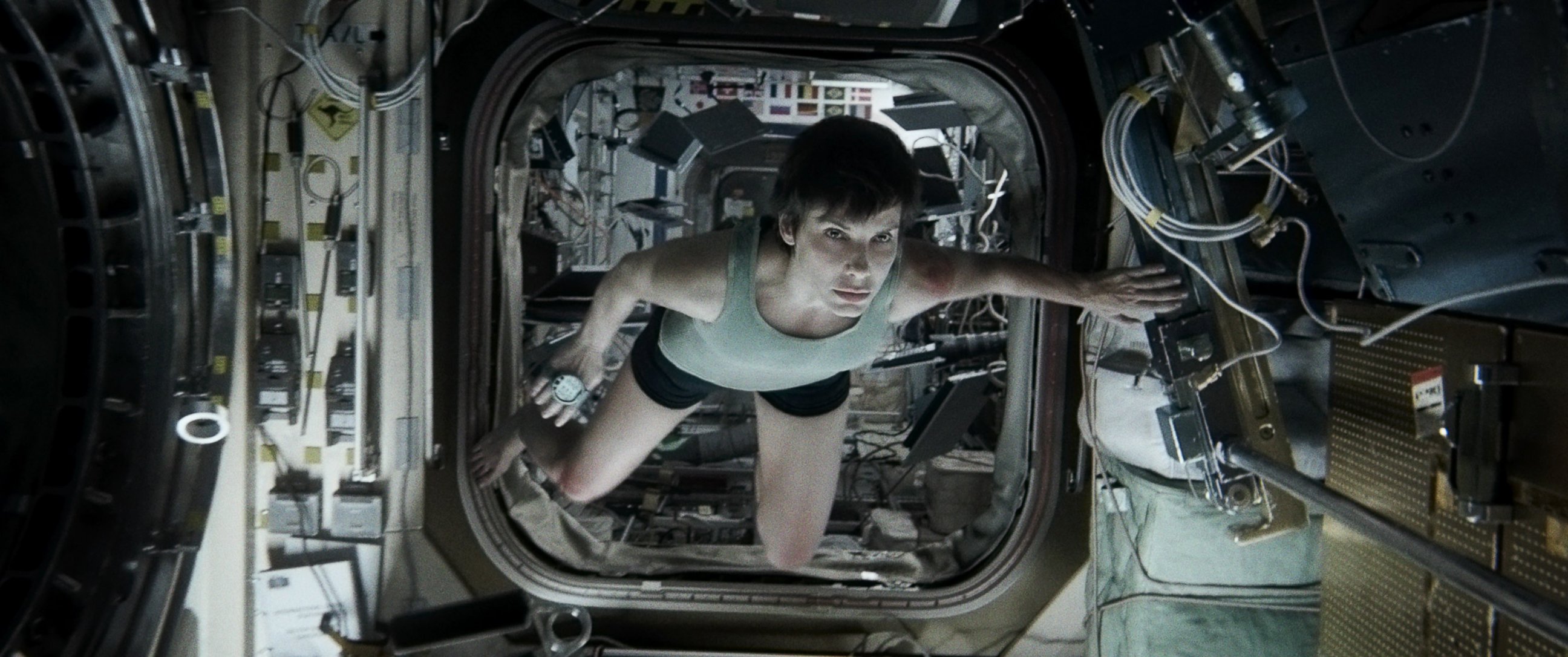US Lawmakers Worry 'Gravity' Film's Space Disaster May Really Happen

Sandra Bullock in a scene from the movie 'Gravity.' Courtesy of Warner Bros. Pictures
WASHINGTON-Lawmakers concerned with avoiding a space disaster from floating junk such as the one depicted in the Hollywood blockbuster "Gravity" encountered a different kind of threat at a hearing with top aerospace and academic minds today: the endless catacombs of bureaucracy.
And although members of the House Space subcommittee in both parties seemed mostly in unison, tight budgets, a patchwork of international agreements, and wider partisan divides on Capitol Hill make a true path forward unclear.
The issue at hand was a phenomenon known as Kessler syndrome. When two objects in orbit collide, be it satellites or tiny stray nuts and bolts, they create more debris. Some of that debris eventually burns up in the upper atmosphere or falls to Earth, but much of it circles the globe instead. Those bits may then collide with each other, creating more debris, which creates more in turn, indefinitely.
It was recently popularized in last year's fictional drama starring Sandra Bullock and George Clooney as astronauts; the film was brought up repeatedly in the hearing. But with so much of the modern world dependent on the over a thousand active satellites in orbit, from weather forecasting to television, it is a real worry to scientists and business alike.
NASA is currently tracking 23,000 objects drifting but they usually can't detect anything smaller than a baseball. All those pieces of scrap could exceed the tens of millions. For example, a single collision between a commercial communications satellite and a decommissioned Russian military one in 2000 created over 2,000 known pieces of debris alone.
"We have whole economies based on space that are now in jeopardy because we are not cleaning up our trash," summed up Rep. Dana Rohrabacher, R-California.
So what to do? Regulations designed to curb the spread of debris do exist but they are spread over five agencies, none with clear jurisdiction over the other. Most members seemed to agree that a single entity was needed to supersede NASA, the FAA, FCC, Defense Department, and NOAA, but singling one out is easier said than done.
"What isn't quite clear is which agencies have or could have legitimate roles in space traffic management," Rep. Donna Edwards, D-Maryland, noted. "That is, the authority to tell a space operator to move a spacecraft should the potential for collision from debris or another spacecraft require it."
Further, a bitterly divided Congress would need to agree to another expansion of federal power and bestow real enforcement power to the organization - the ability to regulate and punish both government space programs and big business - powers likely to rankle conservatives in Congress.
"At the international level the state is liable [for an accident,]" testified Prof. PJ Blount of the University of Mississippi, "And so the way that we manage our domestic assets is going to be very important, the way that we act internationally, because we could be on the hook for something a private actor does."
Even if successfully appointed such an agency may not be able to put much of a dent in international operations; 60 nations have satellites in orbit. And although the world's scientists have known about Kessler syndrome for decades that did not stop China from adding a dramatic increase in space junk in 2007 when it purposefully destroyed a satellite in a military exercise, adding an estimated 150,000 more pieces for astronauts to avoid.
"In my previous two missions we flew upside down and backwards to protect our shuttle windows from orbital debris, and even doing that we had debris strikes and cracks on our windows," noted retired former astronaut Col. George Zamka, now with the FAA.
Zamka described the objects as, "spent rocket bodies and debris traveling in different directions at speeds five to ten times that of a bullet, and carrying tremendous energy into a collision."
Congress members also agreed new technologies should be employed that could help clean up the space lanes. But for now it's all theory: NASA and academia have been studying how such measures could work, but progress is slow and far away. The agency's budget is one of the smallest compared to the overall government: roughly half a percent of total federal spending.
The chance of overcoming that budget restraint for the agency is slim, and the experts present today agreed any future effort would still require the cooperation of international partners to succeed.
In the meantime the long term consequences for a runaway series of collisions, whether as climactic as those in "Gravity" or a slow process of months and years, is clear, according to Rep. Larry Bucshon, R-Indiana.
"Fifty years from now we might not be able to fly in space at all," he said, "because we won't able to get out of the way."